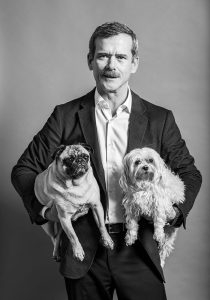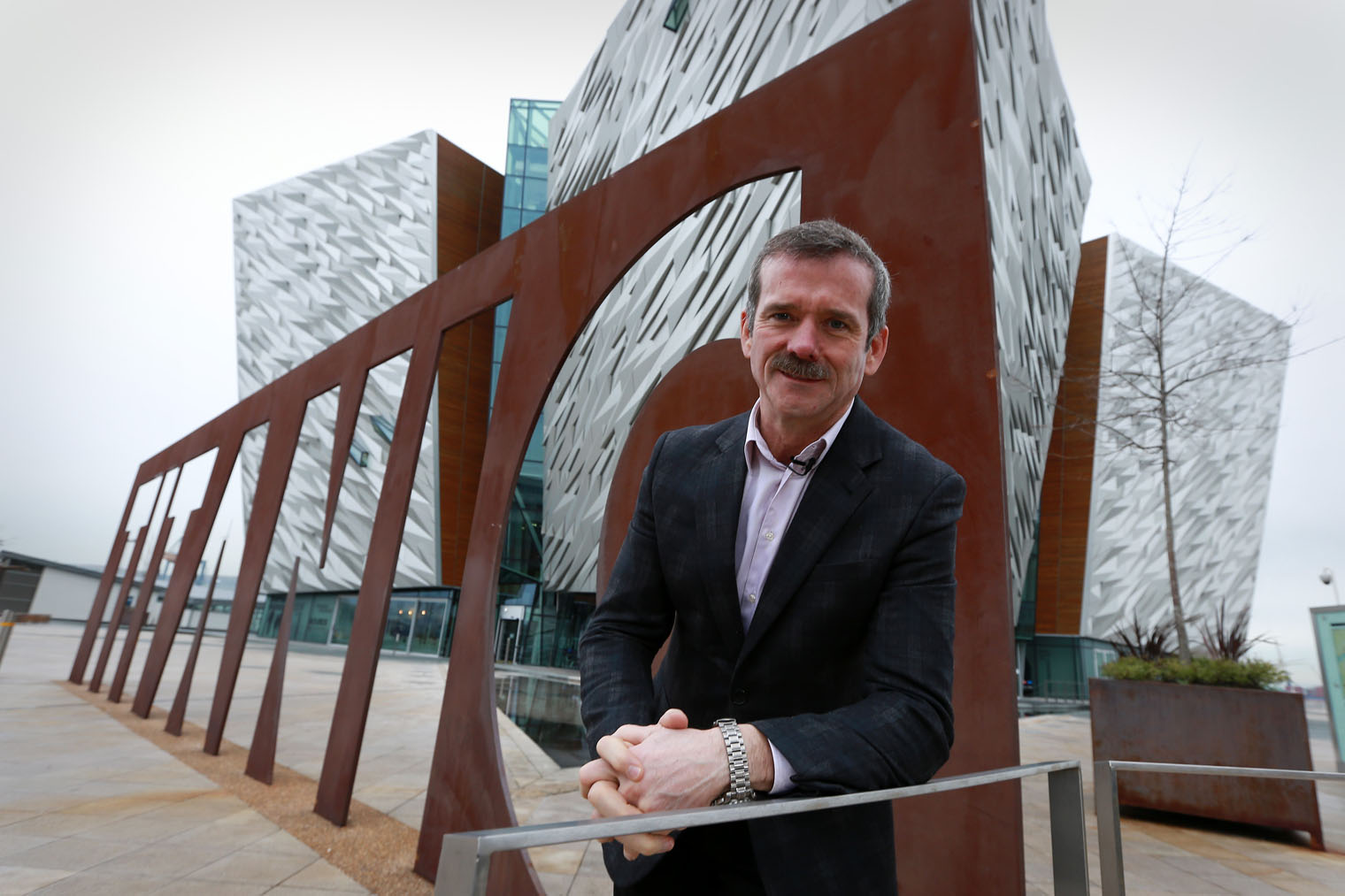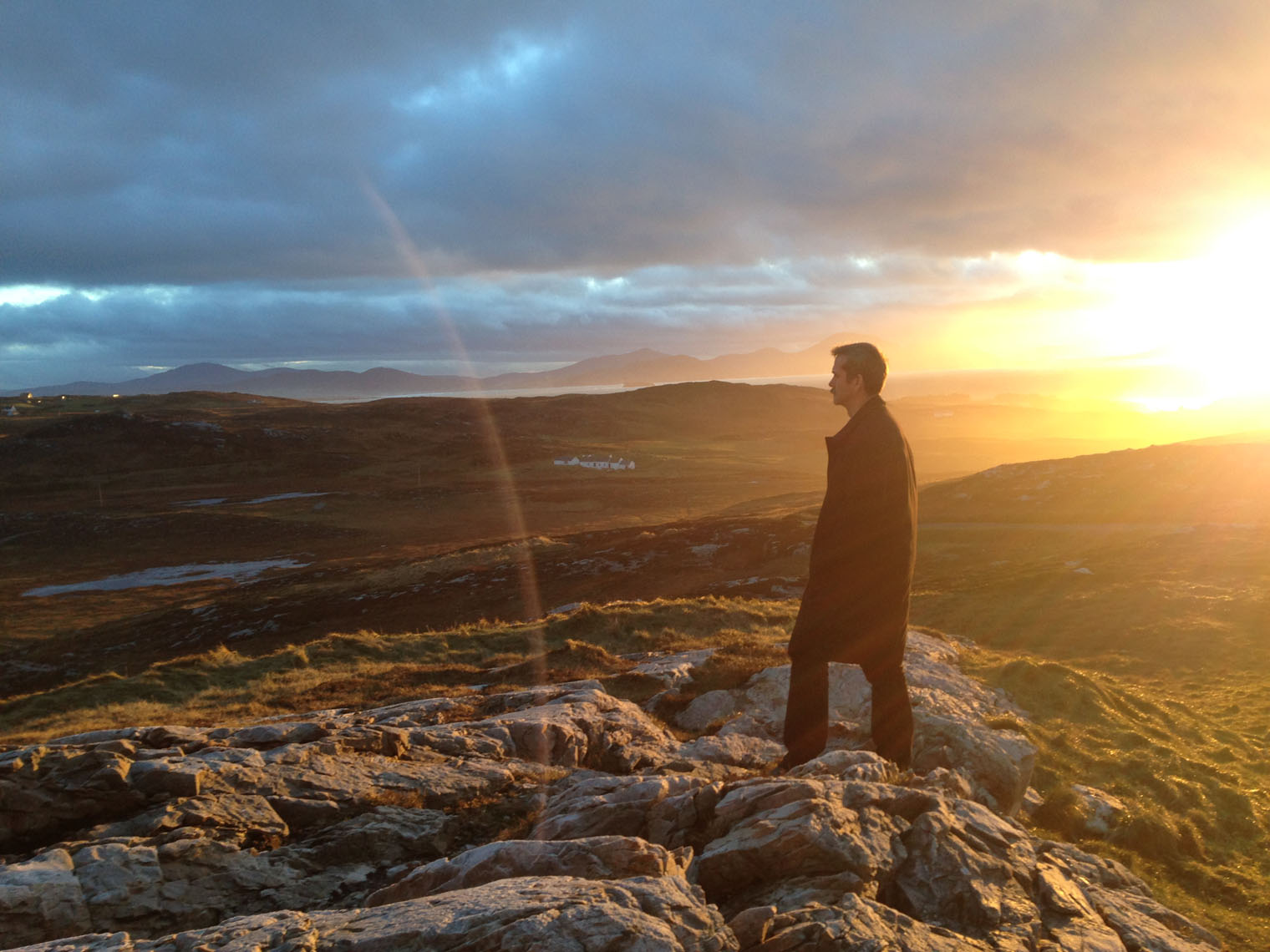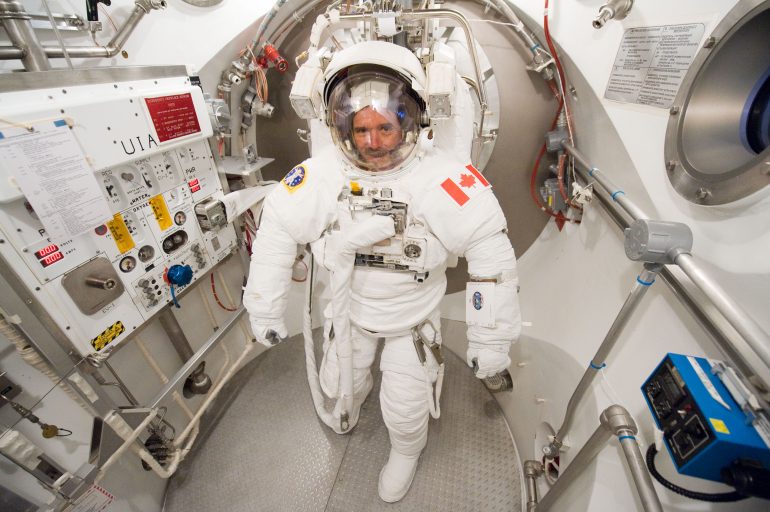A a debt of gratitude is owed to the BC Innovation Council (particularly Director of Communications Lindsay Chan). In preparing for the feature story about the recent Technology Forum, I thought it a “moonshot” asking for the opportunity to interview their keynote speaker, Commander Chris Hadfield. They delivered.
Of course, I’m also grateful to Commander Hadfield and his team for making the time for us to have the conversation. Articulate, eloquent, and informed, talking with Chris Hadfield is a personal highlight. Lob him a good question, and he’s off. As the keynote speaker at an event focused on innovation, that was the theme of our conversation, which spanned the gamut from the Commander’s personal life to the role innovation can play in solving today’s global complexities. There are some lessons below that I hope everyone takes to heart.
Creativity and innovation are interrelated. This process often about being able to connect more than one disparate idea, concept and/or discipline. It can also be about how we relate the past, to the present, and with a vision of the future. How should people approach the process to be more innovative in their thinking?
The simplest clearest example is a field stone house. A lot of houses are built where every brick is the same shape. Makes it easy for the bricklayer, makes it a very predictable structure. All you really vary is colour and texture, but the shape is the same. But so many walls are built (everything from what the Inca’s did through to right now) where you use available stone, available materials, where the shapes are not regular and the density is not necessarily regular. So what you do is that you recognize that you have to work with what have, but you need a certain amount of skills, and sometimes you be able to build what you’re trying to build until you find the right piece. I think that way of thinking is how I’ve approached the problem [of creativity and innovation] my entire life.

You don’t even know what you need until the problem is already upon you, and if you have not built the skills in advance, if you haven’t thought about it, if you haven’t put yourself in a position to recognize that is actually what you need, then how are you going to progress?
I think you have to have a perpetual restless dissatisfaction with your own set of skills. You should always be trying to better understand how things work around you, and try to fill in the holes of your own knowledge, so that you can build your particular wall higher and more soundly.
You can just make a simple decision or you can really dig into it and try to look at your particular wall you’re trying to build and figure out the pieces that make sense to you and then make the right call. It’s a real combination between building the baseline of competence and experience so that then your innovation can be enabled and you creativity can be enabled sort of back and forth. They bounce off each other. But if you don’t have that fundamental basis, then all your really have is belief, and belief can collapse like a house of cards or a poorly built wall any time. So for me, real creativity and innovation are hand and glove, but they have to be based on a sound understanding of the principles that support them.
How do you fill these knowledge gaps? What does the role of mentors mean to you?
For me, there are very few things more satisfying than talking to an expert. I love it when I am given time with someone who really understands something in a field that I don’t. You can learn so much in a hurry and get them to explain it to you.
“I’ve kind of chosen a life that is rife with mentors and mentorship.”
The other revelation I had a few years ago was that every single person you ever meet is expert in something that you aren’t. A three-year-old knows stuff that you don’t know. He or she has done and experienced things that you just haven’t yet. Life is varied. So for me, the real key is to find the mentor in everybody.
I’ve been lucky in my life that I’ve kind of chosen a life that is rife with mentors and mentorship. As a university student at three different universities, and then as a pilot learning, and then as a fighter pilot learning, and then as a test pilot (the most rigorous academic year of my life), and then as an astronaut, all you really do is learn your entire career. You’re surrounded by people who have more expertise than you in some finite area, and you become the great integrator of your particular exposure and knowledge.
I think that’s a great way to view yourself. I am the integrator of all the mentorship of all of the raw and available knowledge that I’ve been exposed to in my life. And it’s really up to me to decide how much of this am I going to absorb, understand, and then use in order to be more creative and innovative, and fun loving and may be fruitful in the future.

I was almost seven, but have my own memories of Neil Armstrong’s momentous declaration, “this is one small step for a man, one giant leap for mankind.” So I wanted to ask you about your decision to become an astronaut. Was it a series of ah-ha moments, leading to one ah-ha moment?
Both. Sometimes the environment creeps up on you, you don’t really notice. Sometimes you don’t notice the mound of history has built up underneath you. You slowly accumulate a great swathe of ideas and influence and opinion, but then maybe something seminal happens like when two people walk on the moon.
Oh yeah, I knew that we were having rockets, and Sputnik happened, and Gagarin, and Alexei Leonov, but wow we just walked on the moon. For me it was that. I read science fiction. I was reading Arthur C. Clarke, Robert Heinlein, Ray Bradbury, and Edgar Rice Burroughs, and watched Star Trek and even Lost in Space. I’d watched 2001 A Space Odyssey, and listens to Bowie’s Space Oddity, and all of that was this sort of building wave of awareness of something that was happening that was interesting to me. I had a big picture on my on wall that came from National Geographic of what we knew about the moon. Then on July 20th, 1969, it’s like when you spin the dial on a microscope and you can sort of see everything, but suddenly, wow it comes into this sharp focus and you suddenly recognize what’s in front of you.
“Sometimes you don’t notice the mound of history has built up underneath you. But then maybe something seminal happens.”
So very much based on the past it all came clear to me at this is what I want to do. When I went outside afterwards and looked up at the moon. That’s really when it rang home for me. This what I want to do. There are people walking on the moon and that they’re not walking there because it was bound to happen, they’re not walking there because they had to, they are there because they just barely could.
It was immensely invitational at the time, but the key of course was what do you do with life’s invitations? I decided that day to start turning myself into an astronaut, which is a whole different process than wishing. I said okay, how do I do this? What changes do I make? And I just used this as a guideline for the rest of my life. When I try to make the small daily decisions, I use that as kind of the end game. If everything goes great, that’s where I want to be, so what do I do today? What do I do tonight? What do I do this weekend?
It occurred to me later that your life is not the big grandiose decisions. Your life is the answer to the question of what do I do next? Your life is the accumulation of that answer. Your choice, what you choose to do next defines who you’re going to be, defines what skills you have. And it really does define your life. Fortunately I choose something that really suited me, opportunity arose, I was lucky, I worked hard at it, and I’ve had some magnificent experiences as a result.
Earning your seat in space gives you a unique, special perspective. How has your rare view of our planet shaped your thinking about innovating to making a world of 11 billion people (projected by 2100) a more humane and sustainable one?
We’ve been riding the crest of an accelerating wave driven by enabling technology for a couple of hundred years. It has had incredibly good consequences. The world have never fed as many people as it does today; we have never had this standard of living on average for as many people we do today; literacy over that past 50 years is a good measure of that, with over 80% of the world having an incredible opening of opportunity. But we’ve built it in an accelerating phase and not a sustained phase and anything that’s done under acceleration is temporary. So how do we turn this into something sustainable?

“I decided that day to start turning myself into an astronaut, which is a whole different process than wishing.”
We didn’t get to where we are by being lackadaisical or unimaginative or hesitant. We got here by being driven and restless and hungry about ideas, and we tried to build structures that allowed the brightest among us to solve problems in new ways. Go to Silicon Valley, or go to The Perimeter Institute, or go to UBC and TRIUMF, or walk over to General Fusion – we’ve set up a structure that allows people to take thought and invention to a level that’s never been seen before.
Not everyone is scrambling for their next meal, not everyone is a hunter-gatherer or a farmer. And so we’ve built an amazing structure but it’s unsustainable. And it’s built largely in the past 150 years on the back of burning fossil fuels. We need a better solution.
So every advanced society reins in their population growth, and the accelerated rate of the integration of technology into both India and into China is phenomenal. It’s unprecedented. This isn’t a slow historic change from agrarian to technological with not many outside influences, with people slowly moving into the cities. This is very different. This is fast. You can draw models based on statistics that will predict anything. I’d be very surprised if we went to 11 billion.
I’m not even sure we will, because of the self-imposed limits of the climate. The way we’re changing the way we feed people, the way we house them and clothe them is so energy wasteful and so polluting that I don’t think the planet is going to allow us to grow at that rate. I think it’s the less developed economies and the more fragile environmental parts of the world that are really going to be the canaries in the coal mine that are going to drive that decision-making.
I think it’s a slowly self-balancing system but we have to find alternate energy sources to fossil fuels. We need to continue to educate people to make informed decisions and more than anything we need to raise the standard of living for as many people as possible and make it sustainable.
You know, the best basketball player in the world has probably never held a basketball in their hands; the brightest mind in the world could be out somewhere digging for potatoes, because that’s the only opportunity they’ve ever been given.
If we truly want our species to thrive, we have to free up the natural talents that exist amongst our species to push themselves to the limit of capability. We’ve done that in part of our society but not throughout. To me, that’s got to be the objective: to raise the standard of living for as many people as possible, but make it sustainable. We need this particular wave to crash as gently as possible to get to some sort of steady sea that allows that to happen.


